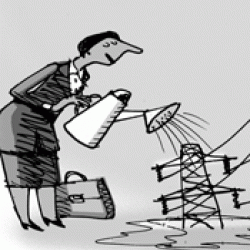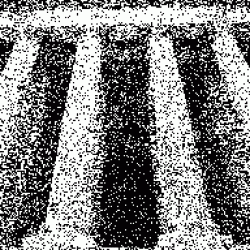
This issue's articles are available below.
ELI Members may login to read and download current and past issues of the Forum.
Not a member? Join now!

The people of Bangladesh are already suffering from the effects of global warming, serving as an early-warning indicator of its ultimate imprint on humanity as a whole. But for right now, the developed world owes the poor countries assistance in their struggle.

The Clean Power Plan’s success hinges on reformation of the transmission lines that link generators and consumers of electrical energy. Congress has the responsibility for creating a durable policy framework for the 21st century’s power infrastructure.
With a SIDEBAR by Howard A. Learner of the Environmental Law & Policy Center

Good governance and the rule of law are the code words of Scott Fulton, ELI’s new chief executive, summarizing a career spent mostly in government implementing those precepts. They are also the axioms that imbue the Environmental Law Institute, making him a close fit with the organization.

In a few weeks, the 21st Conference of the Parties of the UN Framework Convention on Climate Change will convene in Paris to hammer out for the first time an accord that will have binding targets for almost all nations, industrialized and developing alike. We polled some of the leading thinkers and activists involved in the climate change negotiations, asking them what the United States needs to do to realize an agreement that we can live with — one that protects the environment and also wins favor in the Senate and among the American public.

In the wake of the Supreme Court’s decision in Sackett v. EPA, citizen-developers are fighting back against doubtful Clean Water Act enforcement actions. Two subsequent lower-court decisions provide backing for the public in developing alleged wetlands.
A new position and new programs are facilitating cooperation and coordination.
In Alaska, Obama pitches climate action for a region at grave risk.
Three different presidents, five different district courts, and three different circuit courts.
Greater ambition is more easily realized when costs are low.
In a transformation of the EHS function, we cut costs while improving service.
Nitrogen by itself is inert. But add other chemicals and it becomes an evil character.
A protective measure can potentially have anti-environmental consequences.
100 years old, Einstein's revolution in gravity traces to the upcoming climate accord.
Tracy Mehan and a water revolution.
ELI hosts key panel at Swedish water event.
Scott Fulton on the need for a neutral, creative presence.